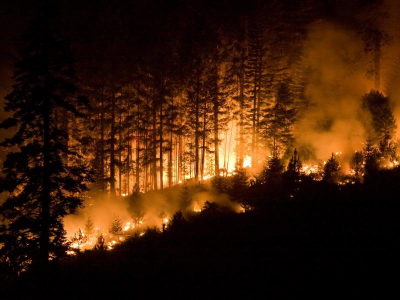From the Rocky Mountain Research Station:
U.S. Forest Service scientists suspected another weather factor was being overlooked as a contributor to recent trends in wildfire: precipitation, specifically summer precipitation. Zachary Holden, an ecologist with the USFS Northern Region, Charles Luce, a research hydrologist, and Matt Jolly, a research ecologist, both with the Rocky Mountain Research Station anecdotally noticed low summer precipitation was associated with the 1988 Yellowstone fire and the major wildfire season of 2017 in the Pacific Northwest.
Read the original research here.

